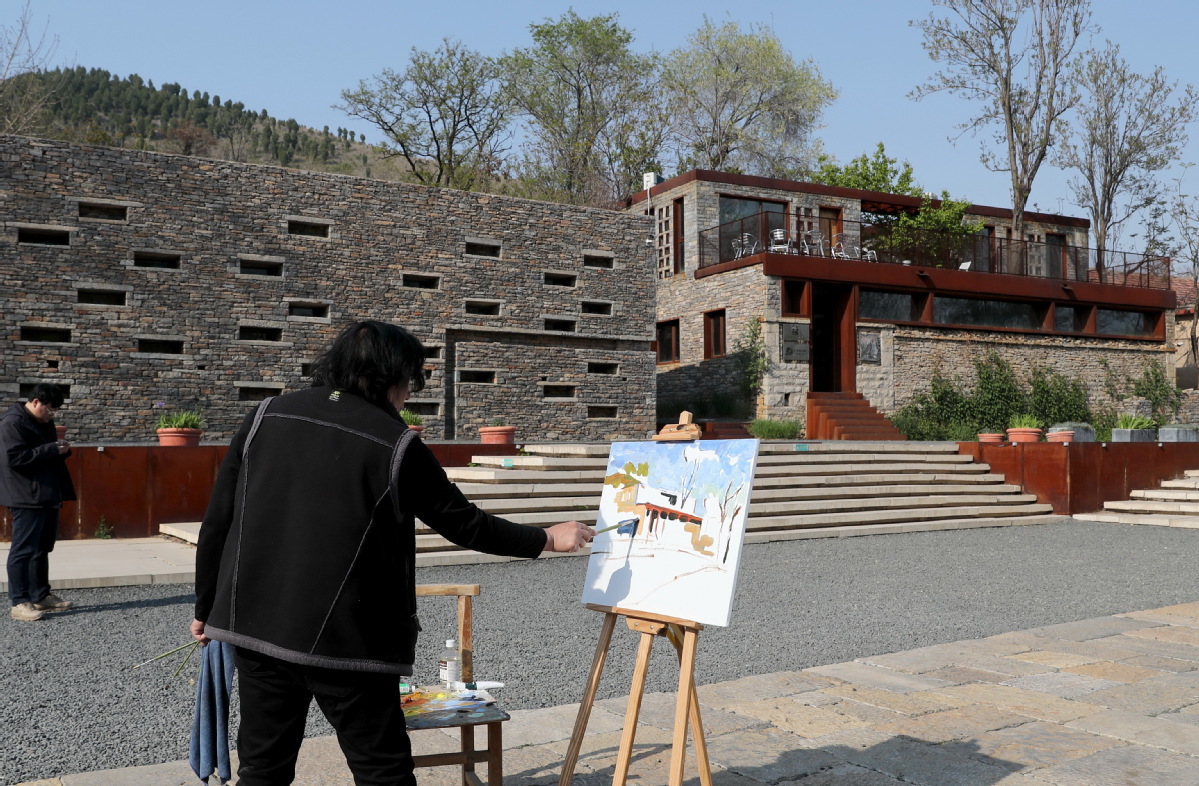'Yimeng spirit' key to Linyi's poverty fight


With neat rows of apartment buildings, wide, clean roads, a modern service center, schools and clinics, Houyuzi village in Linyi, Shandong province, has every basic facility for a modern life.
Only a display of photos and old farming tools shows visitors how underdeveloped it once was.
"Our village had a serious lack of water and arable land, which made it widely known as a poor village and no girls wanted to marry into it," said Liang Zhaoli, Houyuzi's Party secretary.
In 1988, Liang led fellow villagers to build facilities to draw water from a nearby river. Photos show men and women, even the elderly, taking part in the building of channels for the water.
"Villagers worked day and night building water infrastructure. They all knew a shortage of water was the root cause of their poverty," said Huang Wei, a village official.
After a month's hard work, villagers had access to drinkable water via the channels they built. They then built facilities reaching into the mountains to water their farmland.
Villagers started to build roads and develop agricultural industries after the water supply improved, and the village now grows several types of fruit, including apples, persimmons, plums and grapes.
By 2018, all 75 families living under the provincial poverty line had climbed out of poverty. Last year, the village's per capita net income surpassed 20,000 yuan ($3,106).
"Decades ago, Yimeng people worked hard to support the Chinese army in the fight for liberation. Nowadays we work hard to create a better life," Liang said.
Linyi has long been known as the cradle of the "Yimeng spirit", which was cultivated during China's struggle for liberation in the 1930s and 40s.
During the revolutionary war, more than 1.2 million of the 4.2 million people living in the Yimeng Mountain area made efforts to support the Red Army. More than 200,000 joined the army to fight.
The Yimeng spirit of hard work, self-improvement, selflessness and dedication has inspired generations of Chinese people ever since and even today continues to shine in many ways.
Improvements have been seen across the city. The area around Zhujialin in Linyi's Yinan county has been transformed from dilapidated mountain villages into idyllic resorts, with a countryside complex covering 28.7 square kilometers now home to 10 villages and 16,000 people.
The area's old buildings have been renovated into distinctive homestays, cafes and small cinemas, with original architectural features such as stone walls preserved.
Efforts have been made to establish platforms to boost innovation and entrepreneurship.
The local government has released a batch of 16 preferential policies to help the complex build major platforms in six areas, including technological support, talent cultivation, e-commerce logistics and financial support.
The complex has welcomed 21 industrial projects with an overall investment of 1.69 billion yuan, including a fruit processing project.
"The complex has played a vital role in integrating resources from both urban and rural areas and has helped bring consumers and producers together, promoting the development of rural vitalization," said Shao Changwen, who is in charge of Shandong Xiyu Biotechnology, which is located in the complex.
Shao is also a professor of genetics and molecular biology at Linyi University.
He said laboratory work cannot by itself solve the real-life problems occurring in agricultural production, but with the help of Zhujialin as a field research base, his scientific research outcomes can be put into practice.
- China's CR450: A new era of high-speed rail at 400 km/h
- TAN SUO SAN HAO to pioneer future of deep-sea exploration
- Xi's discourses on Chinese modernization published in Japanese
- Officials summoned over alleged garbage bin food served to students
- Caring hearts help to enhance quality special education
- Xi sends condolences to South Korean acting president over plane crash




































